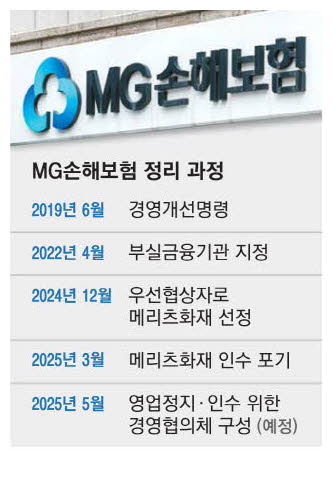Five major non-life insurance companies in South Korea are set to form a management consultative body by the end of this month to push for the acquisition of MG Insurance’s contracts. This move comes as MG Insurance faces potential business suspension due to financial instability.
Background
MG Insurance’s financial struggles have raised concerns about insolvency, prompting regulatory scrutiny. The Financial Services Commission is scheduled to deliberate on the suspension of MG Insurance’s business at its regular meeting on the 14th.
Planned Acquisition Process
The five major insurers – Samsung Fire & Marine Insurance, DB Insurance, Meritz Fire & Marine Insurance, Hyundai Marine Insurance, and KB Insurance – will work together to acquire MG Insurance’s contracts. The process involves:
- Establishing a temporary company (cross-linked insurance company) to manage MG Insurance’s contracts.
- Transferring these contracts to one of the major insurance companies.
Challenges in Contract Transfer
The transfer process is complex, particularly for long-term insurance contracts. These require detailed adjustments to fit the systems of the acquiring insurers. General insurance and auto insurance contracts are relatively easier to transfer.
Financial Soundness Concerns
MG Insurance’s K-ICS ratio, which measures its ability to pay insurance claims, was 4.1% at the end of last year. This is significantly below the regulatory recommendation of 150%. The temporary company is expected to work on improving this ratio before the contracts are transferred.

The financial authorities’ decision to suspend MG Insurance’s business and the subsequent injection of public funds by the Korea Deposit Insurance Corporation are crucial steps in normalizing the company’s financial position. The acquisition process by the five major insurers is contingent upon these regulatory actions.
According to industry sources, the K-ICS ratio is expected to be raised to the 150% level to facilitate the takeover by other non-life insurers. This process aims to ensure the financial soundness of the transferred contracts and maintain stability in the insurance market.


